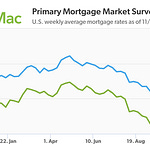Dual agency occurs when one real estate agent or brokerage represents the buyer and seller in the same transaction.
While legal in Massachusetts, New Hampshire, and Rhode Island, the practice of dual agency creates an inherent conflict of interest. A dual agent cannot fully prioritize the best interests of both parties. They cannot negotiate the highest price and best terms for the seller while securing the lowest price and best terms for the home buyer.
Massachusetts, New Hampshire, and Rhode Island law requires real estate agents to disclose dual agency, and both parties must consent. However, consumer advocates caution that dual agency limits loyalty and fiduciary duty.
Home buyers should understand their rights and consider working with an agent who represents their interests exclusively for complete loyalty and advocacy throughout the transaction.








